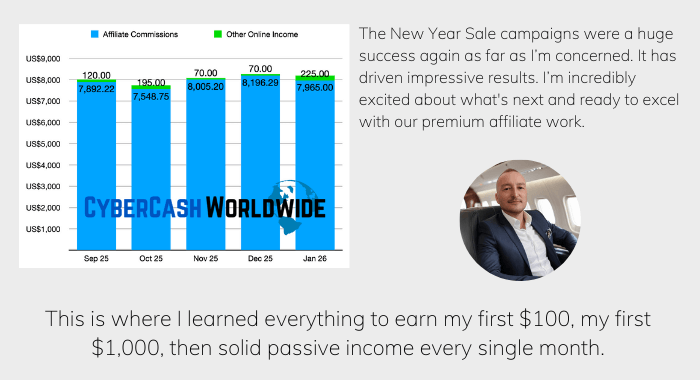Satisficing is an odd word, but it gets the job done. The idea is simple—stop chasing perfection and just hit the target. Online work is stuffed with traps that push people to overthink, overwork, and spiral into exhaustion. Satisficing cuts through the nonsense and makes everything easier.

Accept Good Enough and Move On
Perfection drains time and energy while delivering minimal rewards. Nobody cares if a comma is in the wrong place, as long as the message lands. Obsessing over every pixel on a presentation slide doesn’t make a project better, just slower. Letting go of microscopic worries keeps projects moving.
- Set a rough completion percentage for tasks and stop when you reach it. If you polish a report too much, it wastes time that could be used elsewhere. An 80% effort delivers results most people won’t question. Chasing the last 20% eats into hours better spent on something new.
- Use templates instead of reinventing the wheel. If you spend time designing everything from scratch, you slow yourself down. A good template removes pointless decisions and speeds up the process. Nobody will complain if your invoice looks like every other invoice.
- Skip unnecessary details when sending emails or messages. If you assume people read every word, you are mistaken. A clear sentence with the core idea beats a paragraph stuffed with qualifiers. Over-explaining wastes time for both the writer and the reader.
- Set firm deadlines and stick to them. If you perfect every small task, you delay everything else. Finishing at a set time prevents endless tinkering. Good enough on time beats perfect and late.
- Avoid second-guessing simple decisions. If you spend 30 minutes picking a font, you are wasting time. A random choice saves time and avoids unnecessary stress. Nobody notices tiny design details anyway.
What do you usually over-perfect in your work? If you identify unnecessary polishing, you can reduce stress and free up time for other tasks. If you don't see an issue, your current approach might already be streamlined.
Let Chaos Do Some of the Work
Trying to control every outcome is exhausting. A little chaos makes work faster and sometimes even better. Loose systems adapt while rigid plans crumble under the slightest disruption. Randomness, when allowed strategically, prevents stagnation.
- Start projects before gathering all the information. If you wait for every fact, you will hesitate and delay progress. Most problems get solved along the way. Momentum beats preparation every time.
- Use the first decent solution that pops up instead of hunting for the best one. If you over-research, you waste hours that could be spent finishing tasks. The first reasonable option usually works fine. A flawless choice rarely exists.
- Let unfinished ideas sit for a while instead of forcing them forward. If you step away, new ideas surface naturally. A forced solution rarely works as well as one that appears without pressure. The brain does its best work when left alone.
- Accept small mistakes instead of obsessing over perfection. If you fix errors along the way, you will avoid unnecessary stress. Stressing over details slows progress unnecessarily. Small imperfections rarely ruin anything.
- Reduce planning and increase doing. If you over-plan, you stifle creativity. Taking action forces progress even when the plan isn’t perfect. Moving forward always beats standing still.
How do you handle uncertainty in your work? If you allow small amounts of randomness, you may discover more flexible and innovative solutions. If uncertainty feels overwhelming, small experiments in letting go of control could help.
Supercharge Your AWeber Account
Take Your Email Marketing To The Next Level With These Powerful Tools
Delegate to the Lazy Genius Within
Effort doesn’t always equal results. The brain loves shortcuts, and ignoring that fact creates extra work. Giving the mind permission to cut corners without guilt leads to surprising efficiency. The right kind of laziness gets things done faster.
- Use AI and automation even for small tasks. If you rely on manual effort too much, you waste time. A quick spell check prevents embarrassing mistakes without wasting energy. Automated reminders eliminate mental clutter.
- Outsource anything that doesn’t require personal input. If you try to do everything yourself, you risk burnout. Paying someone to handle repetitive work frees up hours for more valuable tasks. Delegating grunt work prevents unnecessary frustration.
- Let go of the idea that hard work equals better work. If you assume struggling is the same as success, you may be mistaken. A five-minute idea can be more valuable than a week of grinding. Smart effort beats excessive effort every time.
What work do you do manually that could be automated? If you recognize unnecessary effort, you can work smarter and reduce burnout. If you already delegate well, you may be maximizing your time effectively.
Expand the Scope of Satisficing
Many people hesitate to apply satisficing broadly, but restricting it to small tasks limits its usefulness. If used correctly, satisficing works in decision-making, time management, and even creativity. Thinking of satisficing as an efficiency multiplier changes how work gets done.
- Apply satisficing to decision-making. If you wait for absolute certainty, you miss opportunities. Trusting reasonable conclusions speeds up progress. Over-analysis prevents action.
- Use satisficing to manage time better. If you spend time obsessing over schedules, flexibility disappears. A looser approach keeps work adaptable. Strict time management does not guarantee results.
- Recognize satisficing as a creative advantage. If you believe only perfection creates originality, innovation slows. A rough first draft captures ideas quickly. Perfectionist habits kill creativity before it starts.
How widely do you apply satisficing? If you expand its use, work becomes more streamlined. If you hesitate, testing it in new areas might reveal unexpected benefits.

The Long-Term Value of Satisficing
People who satisfice consistently create more, stress less, and finish faster. Workaholics who refuse to use it often burn out without producing better results. If the goal is to achieve sustainable success, satisficing is a necessity, not an option.
- Recognize that satisficing sustains long-term productivity. If you pace yourself, you last longer in any field. Burning out serves no purpose. Longevity beats short-term bursts of effort.
- Acknowledge that satisficing encourages adaptability. If you hold onto rigid methods, they break under pressure. A satisficer adjusts easily to change. Adaptability strengthens career resilience.
- Use satisficing to create a healthier work-life relationship. If work always takes priority, burnout follows. Accepting "good enough" leaves space for personal life. Mental clarity thrives when stress levels drop.
How do you want your work habits to evolve? If you integrate satisficing fully, long-term sustainability improves. If perfectionism remains your default, recognizing its costs may change your approach.
The Future of Work Lies in Satisficing
Perfectionism is outdated. High performers satisfice to stay productive without burning out. Choosing where to invest effort wisely creates better outcomes than exhausting every resource for marginal improvements.
Are you willing to embrace satisficing as a long-term strategy? If you are, your efficiency will increase while stress decreases. If you resist, work habits may remain unnecessarily difficult.
Satisficing clears the way for meaningful progress. The choice remains—pursue perfection at a cost, or move forward with purpose and clarity.

